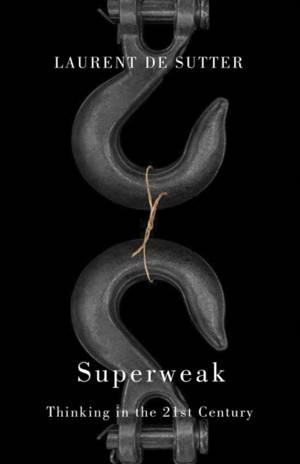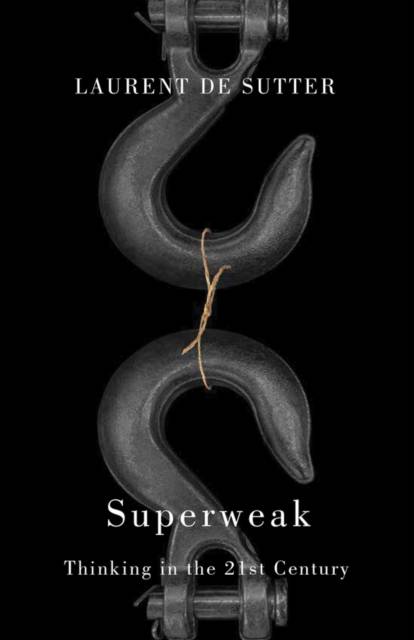
- Afhalen na 1 uur in een winkel met voorraad
- Gratis thuislevering in België vanaf € 30
- Ruim aanbod met 7 miljoen producten
- Afhalen na 1 uur in een winkel met voorraad
- Gratis thuislevering in België vanaf € 30
- Ruim aanbod met 7 miljoen producten
Omschrijving
Today, however, the critical project shows signs of exhaustion. We are beginning to realize that being right is useless, now that everyone can lay claim to the same power as we can. The democratization of reason, proceeding alongside the development of critique through modernity, has produced a stalemate: for every judgment that we pronounce, there is another opposing one - with grounds as solid as our own, and the same right to assert itself. Rather than elevating us above the world, critique has mired us in an impasse of claim and counter-claim.
The age of critique is now over, argues Laurent de Sutter, and in its place we need to develop a postcritical form of thinking, one he calls "superweak," a form of thinking based not on establishing grounds, pronouncing judgment, and determining duty, but on welcoming possibility, exploring what the world has to offer, and cultivating a vertiginous appreciation for moving within a world less grounded and less bounded by the terms of critical reason.
Specificaties
Betrokkenen
- Auteur(s):
- Vertaler(s):
- Uitgeverij:
Inhoud
- Aantal bladzijden:
- 230
- Taal:
- Engels
Eigenschappen
- Productcode (EAN):
- 9781509566471
- Verschijningsdatum:
- 7/01/2026
- Uitvoering:
- Paperback
- Formaat:
- Trade paperback (VS)
- Afmetingen:
- 152 mm x 229 mm
- Gewicht:
- 380 g

Alleen bij Standaard Boekhandel
Beoordelingen
We publiceren alleen reviews die voldoen aan de voorwaarden voor reviews. Bekijk onze voorwaarden voor reviews.








